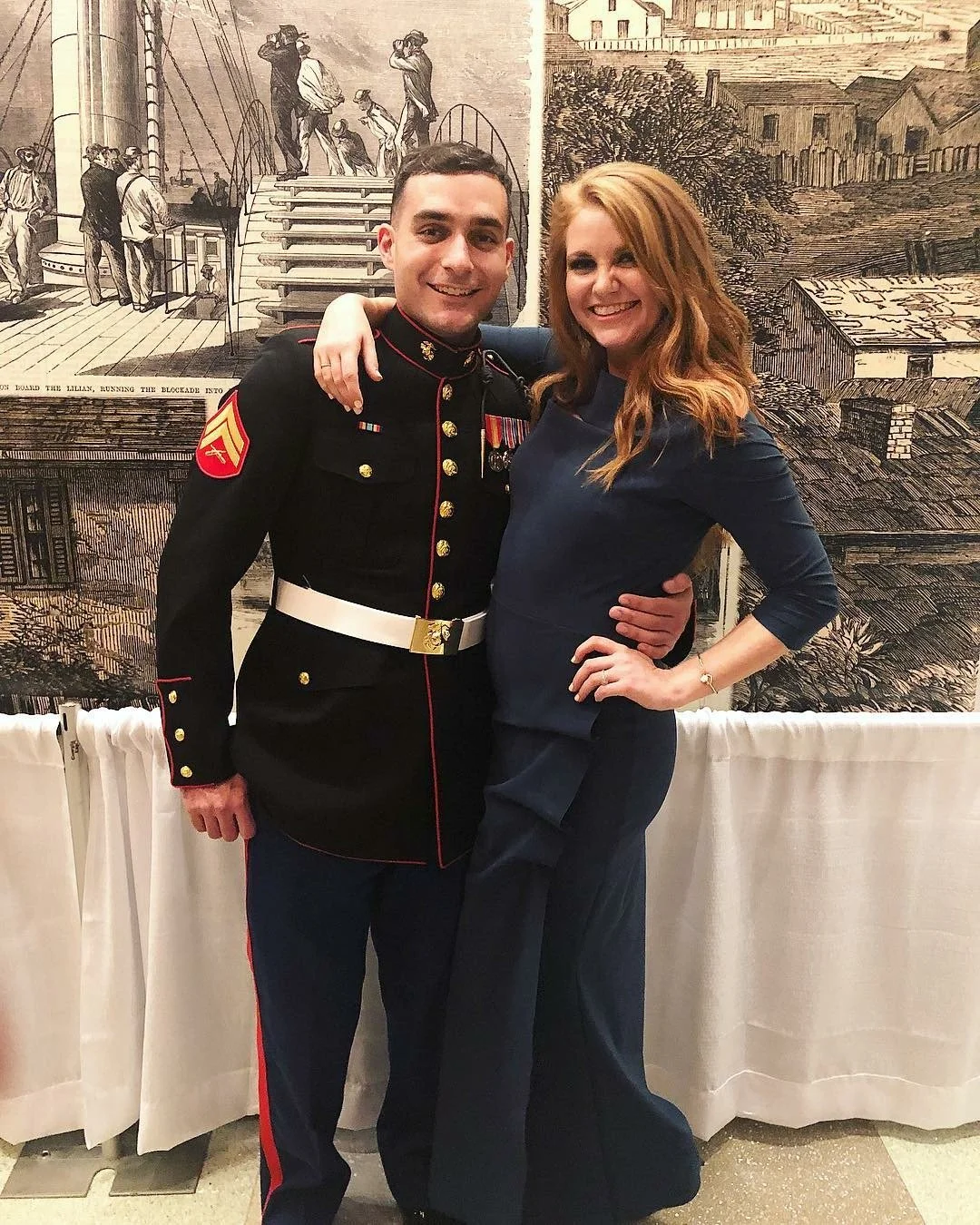Joe Picard– from the Marine Corps to Williams College!
Tell us about yourself, Joe!
Hometown: Haverhill, MA
Fun Fact About Yourself: I’ve never been stung by an insect in all of my 27 years (and I plan to keep this streak alive). I’m also allergic to sunscreen, so my best vacations tend to be colder.
What did you do in the military: I worked as an 0231/Intelligence Specialist for 2d Battalion, 6th Marines for five years, including two deployments (one to the Middle East on the 26th MEU, the other to the Arctic Circle in northern Norway). I briefed Commanders and their staff on a variety of topics, ranging from weather, to foreign military composition, and the smaller details of different cultures.
What was your proudest accomplishment in the military? I have two: My first was the promotion of a friend on our first deployment aboard the USS Iwo Jima in the Middle East. During an exceptionally rough time not only in his personal life, but on the work/Marine side of things, he had struggled at work and was becoming abrasive towards supervisors even in his off-time. Myself and a close friend helped positively critique his work, invited him to our workouts, and got to know him closely during downtime. We encouraged him to improve himself in all facets of his work/life balance, and by the end of the deployment he was promoted to Corporal. I was always proud to cite his successes going forward whenever Marines were struggling.
I was also awarded the Navy and Marine Corps achievement medal for my handling of the Battalion’s security management, and teaching an intelligence class to the Lithuanian Land Forces in Kaunas, Lithuania. I rewrote the Battalion security clearance procedures, briefing/debriefing, and cleared up discrepancies when initiating clearance investigations for Marines in the unit. I led a team of instructors on a week long course that showed the members of the Lithuanian Land Forces how our intelligence process is handled and disseminated. For both of these things, I was awarded the achievement medal.
School and Intended Degree: Political Science & International Relations, Williams College
Why did you decide to pursue higher education? I’ve always enjoyed the most challenging parts of growing in life. That drive is what pushed me into the Marines, and what made me strive for the best possible school. I’ve always sought to pursue higher education, and I wanted to be able to say that I did it in the most fulfilling way I could.
How has the transition been from the military to civilian life? I joined the Marines at 22 having worked for four years between high school and enlistment, so I gained a fair amount of life experience prior to enlisting. I think that this made my transition out easier than others, since I had lived an adult life outside of the military unlike a significant amount of my peers and knew what needed to be done to return to civilian life.
How did you hear about Service to School? My former lieutenant and good friend Cameron Behal is an ambassador and suggested it to me as I started my transition out of the military, as we had talked numerous times about our goals after active duty and he knew it would be of great help to me.
What was the biggest benefit to using Service to School throughout the application process? I’m very grateful to have had my ambassador Josh throughout the entire process, helping me to take the initial steps in returning to academia after such a long gap. He was irreplaceable in setting my expectations for what colleges were looking for, and he knew how to bring out the important experiences and traits that the Marines had given me and translate those into strengths for transitioning to school. Josh worked with me starting from when I was still deployed to the Arctic Circle towards the end of my enlistment, returning, and beginning the application process for schools as I left active duty. Having someone else to bounce ideas off of who has been there before and is knowledgeable about the ins and outs of admission was reassuring. The mere existence of S2S and its resume of success in getting veterans to such good schools instilled the confidence in me to apply where I knew I would also be able to succeed.
S2S is also how Alex DiAddezio, the Williams College admissions director who works with veteran applicants, initially reached out to me. Her positivity, ability to answer all of my questions, and effortless understanding of the unique situation that veterans returning to school have was invaluable.
What are you most excited about in regards to starting school? What’s your favorite part about the school you chose to matriculate at? I’m excited for all of the incredible opportunities that will be available to me at school, from the interesting classes, athletic programs, volunteer work, and the array of recreational activities. I’ve waited nearly ten years to return to college, and I’ve never been more ready to take full advantage of all the amazing opportunities that Williams has to offer.
I’m familiar with being part of a community where you don’t just do your work, clock out, and go home. Getting together for group discussions on improvement in your personal life, finances, fitness, ethics, and family are a part of daily life. I am passionate about getting to know the people around me and what drives them, and it’s a major part in my desire to pursue a higher education and potential place in government. Having met people all around the world, I’ve seen just how similar we all really are, and I strive for the opportunity to help make the world as inclusive and equitable as it can be. I believe Williams is the best place that I can learn and grow into a person that can do that. I didn’t want to be one of those people that only acknowledges their college experience with a water bottle or a bumper sticker, I wanted it to be a defining part of my life that I can always refer to with fondness.
My favorite part about Williams is how tight knit, outgoing, and inclusive the community is. From your first day there, they take steps to ensure that nobody ever feels alone. They go above and beyond in terms of making college a well-rounded life experience instead of just attending classes and taking tests. They understand that mental and physical wellbeing go hand in hand with academic success, and do an unbelievable job in supporting their students. Much like the Marines, it seems that every student takes pride in being an Eph for life, with an alumni network that will be there for you long after you’ve graduated.
What are your goals post-graduation? My goals are to attend a prestigious law school and practice law for my home state of Massachusetts. I also aspire to hold a position in government later in life to try and help the people and places that made me who I am have the best lives for themselves and their families.
Joe’s advice for future veteran applicants:
I would tell future applicants not to downplay their knowledge or experiences. A big part of being in the military is being humbled by those before you that have done amazing things, but when you’re transitioning and applying for schools you need to turn around and realize that you’ve done amazing things too. You should be proud of your leadership ability and the traits that you’re bringing with you. Part of going to college is leaving a positive lasting impression on the school’s community in return for the education and experiences that it’s given you. Understanding that acceptance into a good school is dependent on a mutually beneficial relationship is crucial for the application process.

